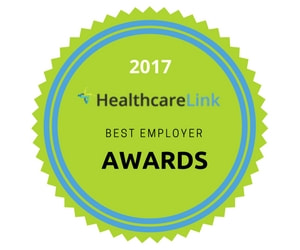It looked like a great idea when you started to build a team of healthcare specialists back in the summer. Despite — or perhaps because of — endless attempts to control costs and improve quality, American healthcare remains (in the words of a recent THCB post) “a version of Afghanistan…replete with tribal conflicts, warlords, corruption, a bad communication system, [and] language problems.” Surely, there must be opportunities for Amazon.
Healthcare reporters were quick to pick up on rumors of your company entering the pharmacy business. If Amazon’s purchasing, distribution, delivery and marketing skills could be applied to the Whole Foods grocery business, imagine what might be achieved in the $500 billion pharmacy market. And imagine how this base could be used to transform the entire healthcare industry. No wonder drugstore chains and drug manufacturers saw their stocks swoon as the rumors spread.
Now it seems Amazon may have been aced out.
CVS Health, the largest retail pharmacy chain and a major pharmacy benefits manager, is in talks to buy Aetna, the third largest US health insurer, for more than $66 billion. While some analysts see this as primarily a defensive maneuver to thwart Amazon, it has the potential to dramatically change the healthcare playing field.
In the short run, both CVS and Aetna would be better protected against their current weaknesses. CVS’ PBM business is increasingly vulnerable as major insurers bring drug negotiations in-house, while its retail stores face growing competition from on-line pharmacies and – more recently – from federal approval of Walgreens’ acquisition of Rite-Aid. Aetna has its own weaknesses: it lost money on the Obamacare exchanges, and the continuing move of large groups to ASO contracts means less profitable underwritten business.
In the longer run, the possibilities are huge, with a CVS-Aetna combination potentially upending the healthcare marketplace. CVS could put more and more MinuteClinics into its stores with Aetna encouraging their use by its members. The MinuteClinics could then be expanded into full service primary care clinics—with pharmacies just feet away! Suddenly, there’s the potential for an HMO far larger than Kaiser, with a friendlier retail environment and thousands of locations already serving the member base. It could be the future face of American healthcare.
Has Amazon missed its big chance? Not necessarily, but the kinds of initiatives analysts have tied to the summer hirings offer limited potential. Healthcare advice or prescription ordering via Echo? Marginal opportunities only. It’s possible to see Echo as key to much of Amazon’s on-line retail business, but the risks and penalties for errors in voice recognition ordering of prescription drugs seem too great. Telemedicine and medical data analysis? Others, with better access to insurers and providers, have been working on such projects for years. (And take a look at how well Google Health and Microsoft HealthVault have done!)
So, what should Amazon do?
First, forget about acquiring retail pharmacies for the moment. There’s no point in going after Walgreens as it tries to digest its Rite-Aid acquisition, and there’s no other independent chain approaching CVS’s size. Second, introduce pharmacies into the Whole Foods stores, increasing revenue while learning the complexities of government pharmaceutical regulations, along with the unique problems of monopolistic specialty drug manufacturers. Third, and definitely later, acquire a PBM, giving members the choice of mail delivery or Whole Foods pickup and providing a captive customer market. Then, maybe, with all these pieces in place, it will be time to acquire – or build – a pharmacy chain able to go head-to-head with CVS.
And then the healthcare business will really change.

 RSS Feed
RSS Feed































